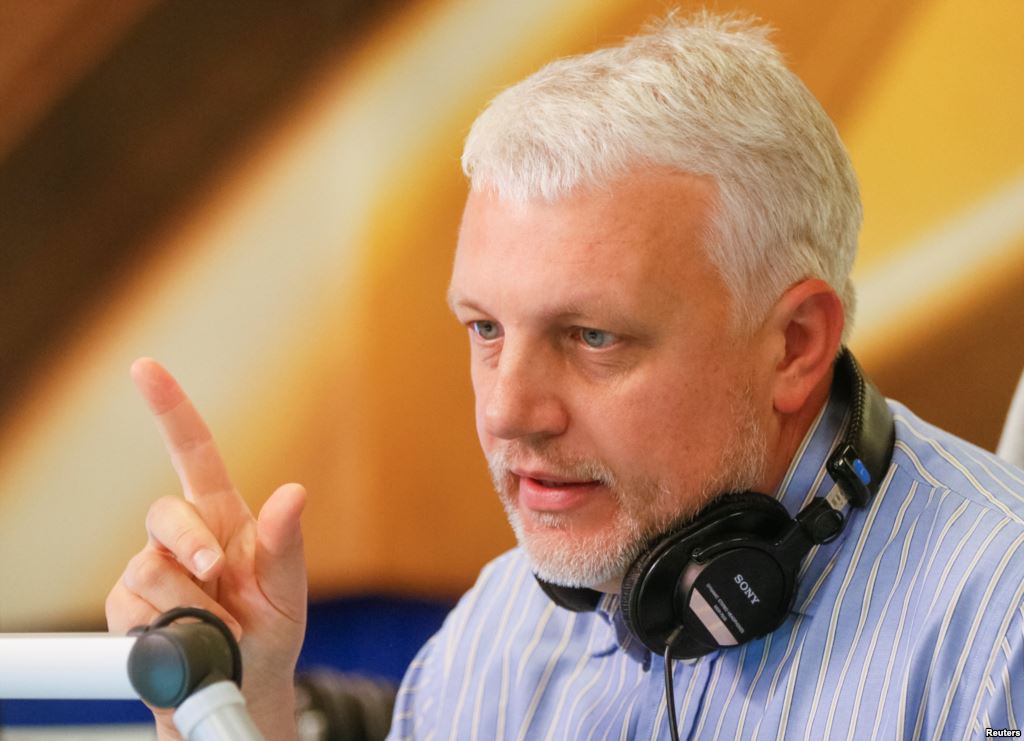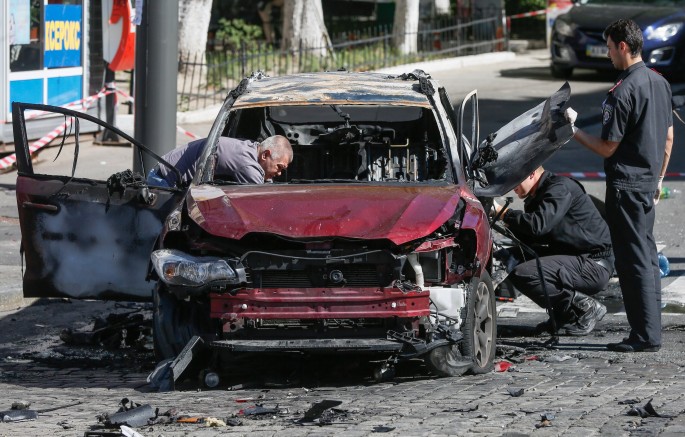In memory of Pavel Sheremet
The journalist Pavel Sheremet, who was murdered in Kyiv on the morning of 20 July, had worked fearlessly in Belarus, Russia and Ukraine, in spite of the dangers inherent in this work. In each of these countries he left a bit of his heart.
Roman Popkov
On the morning of 20 July, journalist Pavel Sheremet was murdered in Kyiv. He had left home in the car belonging to his friend Olena Prytula, co-founder and owner of the internet-paper Ukrainska Pravda [Ukrainian Truth], and was on his way to the radio station Vesti [News], where he was due to present a programme. He had gone no more than a few dozen metres when, at 7.45, the car blew up at the crossroads of Bogdan Khmelnitsky and Ivan Franko Streets. Olena Prytula was not in the car.
Witnesses told Ukrainska Pravda that the explosion was very powerful. “I was sitting drinking coffee on the balcony with my friends. We heard the explosion, which was so powerful that it shook the building.” After the explosion the car caught fire. The police and the Ukrainian security services are working at the scene of the tragedy. Zoryan Skiryak, adviser to the head of the Interior Ministry, has stated that preliminary information suggests that there was an explosive device in the car of 400 to 600 grammes of TNT equivalent.
Pavel Sheremet and Olena Prytula had already made a statement to the effect that they had noticed they were being followed.
Pavel Sheremet was born in Belarus. He began his media career in 1992 as an economic consultant at Belarusian TV. He then became the lead presenter for the TV programme Prospekt. In 1995 he was awarded the prize for best TV journalist in Belarus by the Adamovich Belarus Pen Centre.
In 1996 he became chief editor of Belarus Business News. As special correspondent for Russian Public Television (ORT) he was a stern critic of President Aleksandr Lukashenka, which got him into trouble with the Belarusian authorities. “He is a serious opponent with colossal intuition, an animal sense of danger and a crazy thirst for power,” was how Sheremet described the Belarusian president.
In July 1997, while filming on the border between Belarus and Lithuania, Pavel Sheremet and his cameraman Dmitrii Zavadsky were arrested by the Belarusian KGB and accused of illegally crossing the border and being in receipt of funds from Western intelligence services. The Russian media started a hard-hitting campaign against the persecution of journalists and Pavel Sheremet received public support from Boris Yeltsin. The upshot of this was that Sheremet was given a suspended sentence by the court and released after three months in pre-trial detention.
After his release he no longer undertook regular journalistic work inside Belarus, though he continued to keep a close watch on events there. He investigated the kidnapping and murder of his friend and colleague Dmitrii Zavadsky: he laid the blame at the door of the Belarusian “black squadrons”, current and former law enforcement officers who carried out the criminal orders of the regime relating to the physical extermination of anyone in opposition.

From the end of the 90s Pavel Sheremet’s journalistic activity was more and more closely connected with Moscow. He became a special correspondent for the TV channel ORT, then director of current affairs and presenter for Vremya [Rn Time, news programme].
Two weeks before the 2000 presidential election, which resulted in victory for Vladimir Putin, Sheremet left Vremya and, in his own words, “spent a long time trying to wash myself clean of the shame” – the ORT news programmes offered virtually open support for Putin’s candidature. In the spring of 2000, Sheremet starting producing documentaries for ORT.
His best-known films include Yegor Gaidar – the cursed days about one of the chief reformers at the beginning of the 90s; Nemtsov – conclusions, a film made for the 50th birthday of the politician Boris Nemtsov; and a film about the disappearance in Belarus of people out of favour with the Lukashenka regime. Svetlana Kalinkina and he co-authored a book called President by chance about the Belarusian dictator who had come to power in 2004.
Throughout the time he worked in Russia, Sheremet continued to the best of his ability to take part in events in Belarus. In 2005, he founded the site Belarusian partisan which soon became one of the most popular independent media outlets in Belarus. He also went back to Belarus to take part in various protests. In 2010 the government there announced that Sheremet was to lose his citizenship – apparently because he was a Russian citizen, although Belarusian law does not forbid dual citizenship.
In 2014 his sympathies for Euromaidan drove Pavel Sheremet to leave Russian television. In his words, “recent times in Russia have seen the hounding of journalists whose accounts of what is going on in Ukraine and the Russo-Ukrainian war are not to the liking of the Kremlin propaganda machine.”
In Ukraine Sheremet worked with Ukrainska Pravda, Gromadske TV and the radio station Vesti.
In 2015, he gave an interview to Open Russia. Once more he spoke about his home country, which had been living under a dictatorship for more than 20 years.
Pavel Sheremet is fully entitled to be regarded as a Russian-Belarusian-Ukrainian journalist. He worked fearlessly for the good of these countries and left a bit of his heart in each of them.




